What is Ginger?
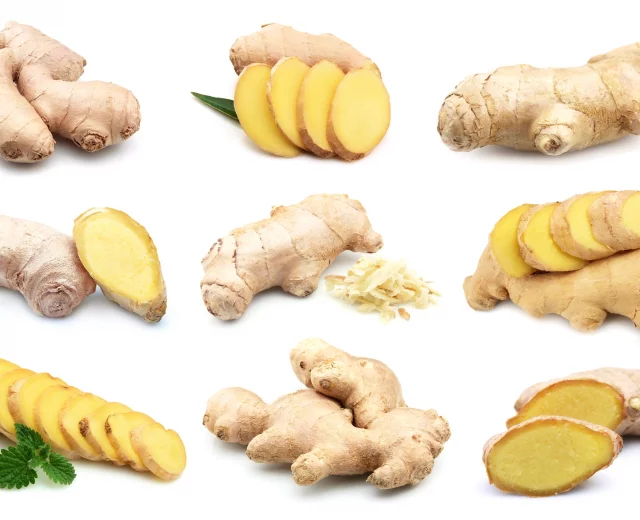
Ginger is an age-old spice counted amongst one of the world’s healthiest (and most used) spices.
It is a flowering plant native to Southeast Asia which belongs to the Zingiberaceae family.
Gingerols are active compounds found in ginger, making it an all-rounder spice, adding to many of its health benefits.
Ginger is commonly used in Ayurveda, Chinese, Unani, and Tibetan medicine system to treat ailments like arthritis, indigestion, constipation, ulcer, hypertension, vomiting, diabetes, and cancer.
For thousands of years, people have been using ginger root in various forms like freshly chopped, dried, powdered, and juice for cooking and medicinal purpose due to its high nutritional value.
What is the History of Ginger?
As old as around 2500 years, Ginger is believed to be first found in the southern regions of ancient China from where it expanded to India, Maluku Islands, then the rest of Asia, and West Africa. In the 1st century BC, the ancient Romans traded with India and brought ginger to Europe for the first time. Later, Marco Polo brought spices like ginger, turmeric, etc., to the western world during his travel. India is known to be the world’s largest producer of ginger.
Fun fact: In the Middle ages, a half kilogram of ginger was worth one sheep.
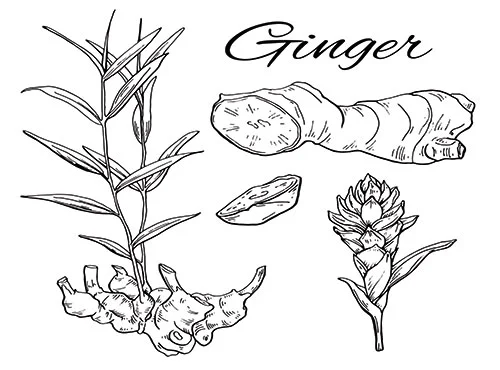
What are the other names of Ginger?

| Scientific Name | Zingiber officinale |
| Family | Zingiberaceae |
| Chinese (Mandarin) | Jiang; Sheng jiang (fresh) |
| English | Ginger |
| French | Gingembre |
| German | Ingwer |
| Hindi | Adrak, Adrakh (fresh); Sonth, Saunth (dried) |
| Sanskrit | Singabera |
| Indonesian | Jahé, Aliah, Jae, Lia |
| Japanese | Shōga, Shoga, Jinja; Myōga, Myoga (Zingiber mioga) |
| Korean | Kon-gang, Geon-gang, Jinjeo, Chinjo, Saenggang |
| Newari (Nepalbhasa) | Palu |
| Tamil | Ingee, Inji; Sonti (dried) |
Where is ginger grown?

Ginger usually grows in warmer parts of Asia, such as China, India, and Japan. Other than Asia, it grows in West Africa, South America, and the Middle East.
India is the world’s largest producer of ginger, responsible for around 34% of total production, followed by Nigeria and China.
Ginger is majorly grown in Indian states. Karnataka, Orissa, Assam, Meghalaya, Arunachal Pradesh, and Gujarat are among the highest producing states, with around 65% of the country’s total production.
Top 5 Ginger- Producing Counties in the World in 2019
| Rank | Countries | Ginger Production in 2019 (in tons) |
|---|---|---|
| 1 | India | 1,788,000 |
| 2 | Nigeria | 691,239 |
| 3 | China (mainland) | 581,137 |
| 4 | Nepal | 297,512 |
| 5 | Indonesia | 174,380 |
**Source: FAO Statistical Database,2019
How to Grow Ginger
Here is a step-by-step guide to growing your ginger (in a pot) at home!
Timing: Begin in early spring. Ginger is a tropical plant that cannot withstand ice & harsh cold weather, so ideally, the spring season is considered best to start with.
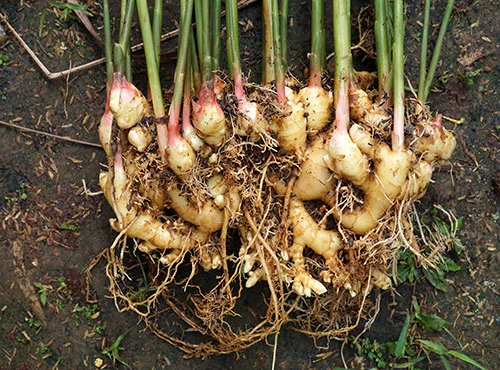
Choosing Ginger root: Choose plump, wrinkle-free ginger roots with visible eyes (small bud points) at the ends of the root. Eyes that have begun to turn green are preferable but not necessary. Choose organic ginger if possible.
Soil selection: Ginger grows best in soil that is loose, loamy, and high in organic matter. Loamy soils let water drain quickly, which helps minimize waterlogging.
Location: take in mind that Ginger grows well in hot, humid areas. It is advised to select a site with plenty of light, including 2 to 5 hours of direct sunlight, and protected from strong winds.
Step-By-Step Guide
1. Cut small bits, around 3-6 cm root piece (preferably with small bud points) from the fresh ginger root. And place it in the pot once your soil preparation is ready. Ginger takes around 10 months to mature.
2. The ginger plant should be planted in a pot that is at least 15 inches wide and has a variable depth as ginger rhizomes spread horizontally and grow well when given enough space to spread.
3. The ginger plant prefers an open, sunny area. However, if the open space isn’t available, you can place your pot in outside shade or any place with enough sunlight. Try placing your containers accordingly.
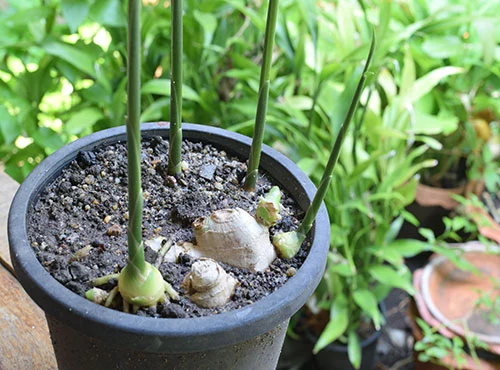
4. Use loose, well-drained soil for your pot mix. Add a high-quality potting mix with plenty of additional compost. You can also use organic manures such as bio-compost and vermicompost for better results.
5. The ginger plant demands a lot of water, due to which it must be watered regularly. You should prefer using a Watering Can to water your ginger plant so that the water spreads evenly and there is no water logging in one place, which can lead to rotten roots.
6. The initial harvesting can take anywhere from 5 to 6 months following implantation. Ginger rhizomes should be ready to harvest when the plants reach a height of at least 3-4 feet.
7. For the final harvest, remove the topsoil and uproot the ginger roots using a shovel. Make sure you don’t pull off the entire plant. Break the rhizome in one spot and use the fresh ginger. You can use a small amount of ginger and leave the remainder to grow from time to time.
What does Ginger taste like?
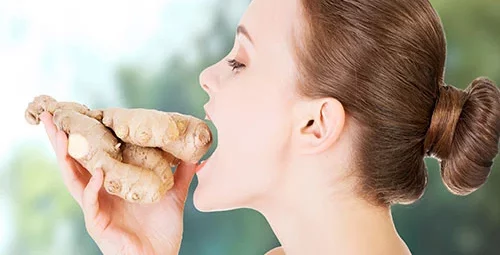
Why should I use Ginger?
Ginger has been a part of our kitchen for a long time now; ginger has been an all-rounder spice, whether brewing a hot cup of ginger tea or adding flavor to your curry. But did you know that ginger has been used for its medicinal properties for years other than being a kitchen spice?
Ginger is high in phytochemicals, antioxidants, and other valuable components like vitamin C, magnesium, and potassium.
Gingerol found in ginger contains potent antioxidant and anti-inflammatory qualities, which makes ginger great for improving digestion, boosting cognitive function, reducing inflammation, and enhancing immunity.
What are the various ways to use Ginger?
Here are different ways to use ginger in your diet:
Ginger Tea
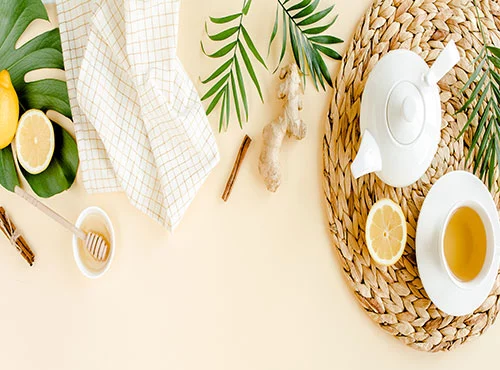
Take 2 inches of fresh ginger and grind it using a pestle and mortar. Boil 2 cups of water and then add crushed ginger in a saucepan. Boil it for 10-20 minutes to allow the Ginger to infuse properly. Strain the tea, Squeeze 1/2 lemons and add honey when it has cooled down slightly. This Drink does wonders in treating colds, sore throats & boosting your immunity.
Ginger Juice
When serving, add ice, fresh mint, and lemon for extra zest!
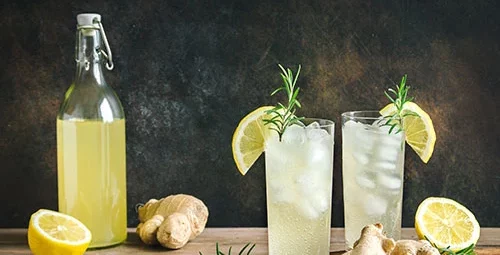
Ginger Powder Milk
Add the milk, water, and ginger powder to a saucepan, and bring to a boil over high heat. Reduce the heat to medium and continue to simmer until reduced to half. Add Honey/maple syrup; mix well and serve warm.
Ginger Carrot Soup
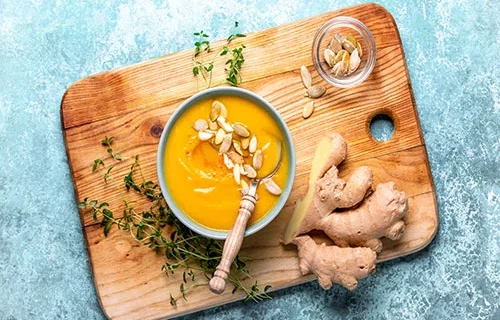
Melt the butter in a soup pot. Sauté the onions, salt, and grated ginger for 5-10 minutes until the raw smell goes away. Add the carrots and water, then bring to a simmer—cover and cook for about 20 minutes or until the carrots are soft. Let the soup cool down before blending it into a smooth purée. Heat it again until hot. Season it with salt and pepper to taste.
Ginger Powder
Take ¼ to ½ teaspoon of Ginger Powder, mix it well with honey, and take it with lukewarm milk twice daily to see the best result.
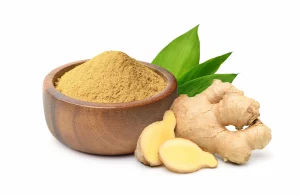
Ginger Tablet
Take 1-2 Ginger tablets twice daily with lukewarm water or milk.
How much Ginger should you consume per day?
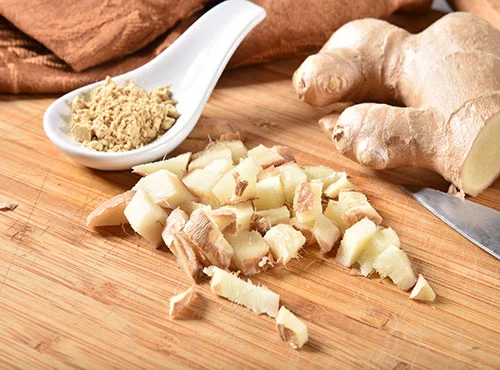
- 1/2 teaspoon ginger powder
- 1 tsp raw ginger, grated
- 4 cups water with 1/2 teaspoon shredded ginger simmered
What are the properties of Ginger?
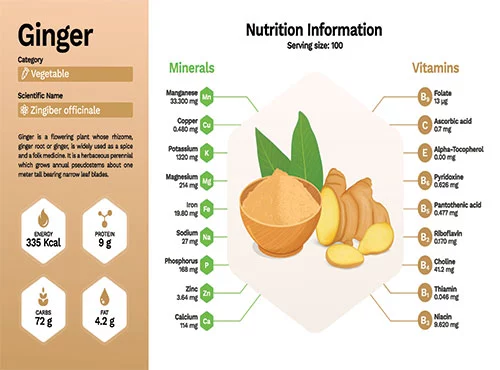
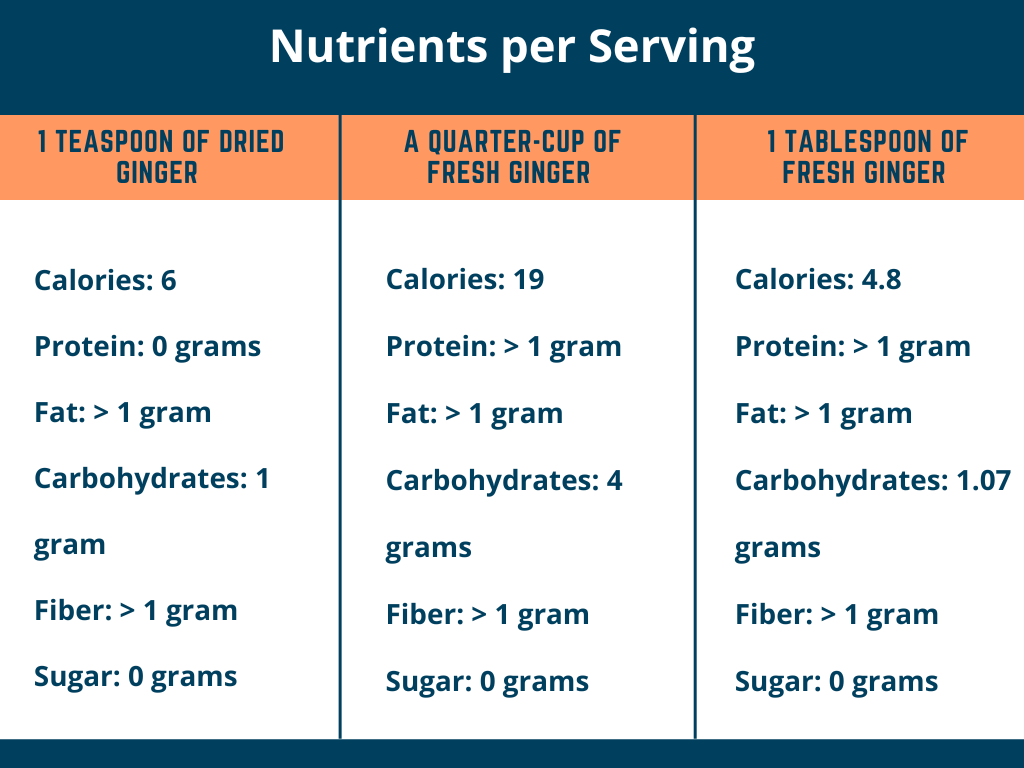
What is Ginger good for?
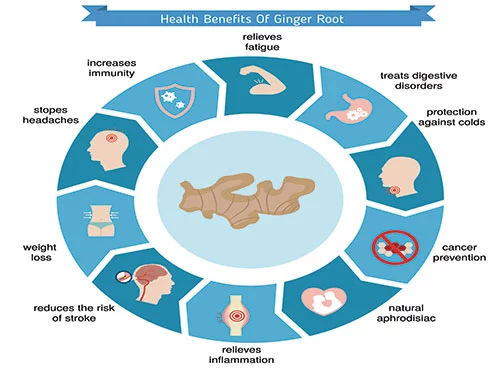
This wonder spice has been used in traditional Indian and Chinese medicinal practices for centuries for a reason. And now Ginger’s numerous health benefits are backed up by scientific studies.
So let’s have a look at what all Ginger is suitable for:
- Ginger can ease symptoms of motion sickness such as vomiting, dizziness, and cold chills.
- The key ingredient, gingerols, found in ginger, can help alleviate nausea associated with pregnancy, surgery, and chemotherapy.
- Regular use of ginger tea promotes heart health and lowers blood pressure.
- Ginger tea prevents blood clots, relieves heartburn, decreases cholesterol, and enhances blood circulation.
- Ginger can aid in the management of obesity and obesity-related problems.
- Regular consumption of ginger lowers blood sugar levels in persons with type 2 diabetes.
- Ginger has anti-inflammatory properties. It soothes headaches, menstrual cramps, sore throats, and painful muscles.
- Ginger can help to boost immunity and reduce stress.
What are the health benefits of Ginger?
Ginger is a great spice to add taste to your favorite cuisine, providing various health advantages. Ginger is high in phytochemicals, antioxidants, and other useful components that improve digestion, boost cognitive function, reduce inflammation, and fight illness. This pungent exotic herb, which belongs to the same botanical family as cardamom and turmeric, has been used in Asian, Indian, and Arabic medicine for thousands of years.
Here are a few of its many benefits:
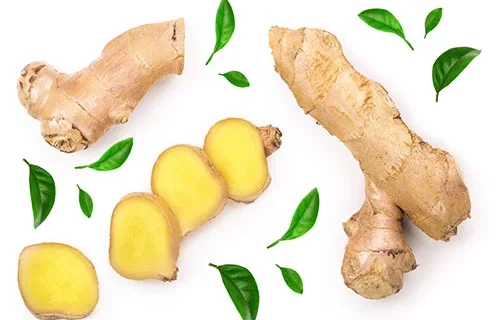
Improves Your Immune System
Enhances Brain Function
Many studies have suggested that ginger improves serotonin and dopamine levels, decreasing inflammation and promoting brain function. It is also beneficial in reducing the symptoms of anxiety, depression, dementia, Alzheimer’s disease, schizophrenia, and post-traumatic stress disorder. A cup of ginger tea can help to improve concentration, focus, and energy.
Reduces Inflammation
According to one study from the University of Miami, ginger extract may be as efficient as nonsteroidal anti-inflammatory drugs (NSAIDs). So, consuming ginger regularly can reduce pain and improve mobility.
Helps to treat Cold and Sore Throats

When winter begins, ginger tea is an excellent choice to warm yourself up. Because of its diaphoretic nature, it induces sweat and can thus be used to treat diseases such as influenza or the common cold. The raw ginger root has potent antiviral properties, which can help you fight infections that can cause sore throats.
You can try hot Ginger tea to ease respiratory problems as well.
Promotes Digestion
Helpful in Treating Cancer
Ginger is an excellent source of antioxidants that can lower free radicals in the body, a significant cause of cancer. Studies have shown that It protects your cells from DNA alterations and can help prevent cancer cell growth. It has also been proven beneficial for patients who go through radiation and chemotherapy.
Improves Heart Health
And that’s not it; a study done in 2015 has shown that ginger has potent anti-diabetic effects. In the research, 41 people with type 2 diabetes were given 2 grams of ginger powder per day, which reduced their fasting blood sugar levels by 12%.
Ginger may help minimize artery damage, lower excessive blood pressure, and promote a healthy heart and circulatory system.
Rejuvenates Skin and Hair
Relieves Menstrual Cramps
A monthly pain routine can be tough on most of you ladies. Still, the good news is that ginger, due to its anti-inflammatory and antispasmodic effects, can help t relieve the discomfort of menstrual cramps. It is typically more effective than over-the-counter medications. One study found that consuming 1 gm of ginger powder every day during the first three days of your period cycle can lessen pain and aid with symptoms such as nausea. So next time you are down with uncomfortable cramps, sip some hot ginger tea or soup to ease the pain.
What are some recipes one can make using ginger?
Let’s look at some mouth-watering recipes with a hint of ginger. Let’s Dig in!
Ginger ale is a traditional ginger beverage made from carbonated water that has been flavored with ginger. It is one of the favorite summer drinks and the easiest to make. With the goodness of mint, lemon, and ginger combined and topped with soda, this beverage is ideal for house parties. It can be used as the base for various alcoholic and non-alcoholic drinks.

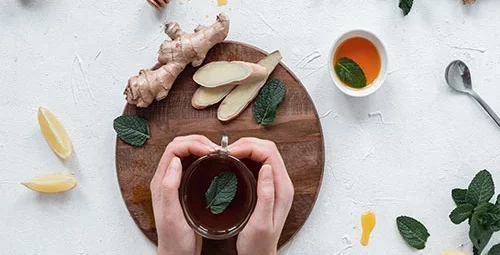
It is excellent for people with Vata and Kapha dosha types.
Carrot and ginger pickle is a side dish included in Indian meals to aid digestion. It is prepared by fermenting carrots, ginger, and other seasonal vegetables and spices as per choice, and it is beneficial for Vata dosha imbalance. Try this recipe now.
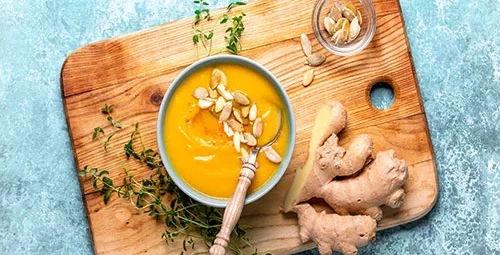

Ginger cookies are the ideal teatime snack, complementing your cup of evening tea. This cookie recipe is sweet and crispy, packed with ginger and honey, eggless, and cooked to perfection. We are already drooling! BRB.
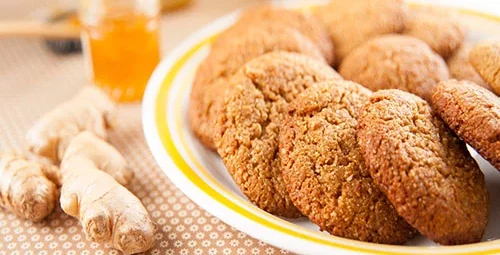
This delightful and wholesome almond, ginger, and custard apple smoothie will quench your thirst. It is a quick, fresh, and fruity treat that will satisfy your taste senses and is excellent for your health too!
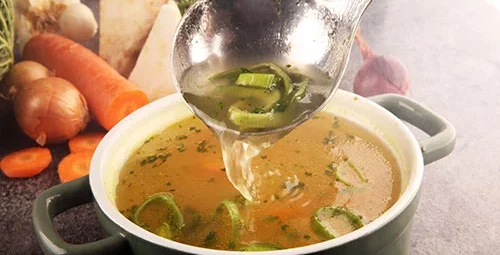
What are the side effects of Ginger?
- Trigger Heartburn: Ginger is a powerful ingredient that, when consumed on an empty stomach, can cause gastric stimulation, resulting in heartburn and an upset stomach
- Lead to diarrhea: Ginger, according to experts, can cause diarrhea if consumed in large quantities. because it helps to accelerate the passage of food and feces through the intestines and can cause discomfort, which frequently leads to restlessness and weakness
- Unsafe during pregnancy: Ginger consumption above the recommended limit of 1500 mg per day, according to gynecologists, may raise the chance of miscarriage. Avoid consuming too much ginger during pregnancy or only after consulting with a doctor to be safe.
- Causes bleeding: Ginger contains salicylates, the chemical found in aspirin that acts as a blood thinner. This can cause problems for people with bleeding disorders if ginger is consumed in a high dosage.
To save yourself from these side effects, avoid consuming more than 4 grams of ginger in any form in a day.
How to store ginger/ how to store ginger root?
Ginger is used in most dishes and is known for its flavor and aroma. It is also believed to have excellent medicinal benefits, but molds can grow on ginger if not stored properly; however, this can be avoided if you follow these tips to store your ginger to increase its shelf.
- Always wrap the ginger in a paper bag or a paper towel tightly (to avoid any moisture) before placing it in the refrigerator or freezer.
- Keep the freshly peeled ginger in a container with lemon juice or vinegar.
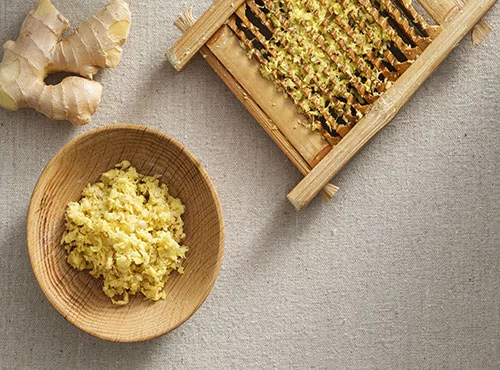
- Freeze finely chopping ginger in a tray and then store it in an air-tight container. This frozen ginger can be stored for a few months without losing its flavor.
- Place the entire pieces in a resealable bag, squeeze out all the air, cut the parts as needed, and use it accordingly. This method will keep the ginger fresh for at least a month.
What are the medicinal uses of ginger?
Now the good news is that FDA has added ginger to its list of generally safe foods too, which makes it medically suitable (if taken in the correct quantity) to use as a remedy for medical conditions like:
- Indigestion
- Upset Stomach
- Cold and flu
- Inflammation
- Nausea
- Menstrual Pain
- Joint Pain
- Migraines
- Hypertension
- Morning sickness
Is it good to eat ginger every day?
- Help manage Acid Reflux
- Aids in your Weight loss journey
- Great remedy for Morning Sickness
- Helps you stay Cancer-Free
- Improves Digestion
- Reduces menstrual pain
- Works as an anti-inflammatory
- Lowers Risk of Infection
Who should not take ginger?
Ginger, the wonder spice which works as a remedy for so many problems! Ginger can treat everything from stomach issues to colds and chronic coughs. But, ginger has its limitations as well. Its perks may not be for everyone. Yes! This natural remedy can be a health hazard for patients with a specific medical condition.
Underweight people:
People with blood disorders:
Haemophilia is a rare disorder where blood clotting does not take place. Though blood clots might be dangerous in specific situations, they are necessary for proper body functioning. A loss of clotting capacity might result in significant bleeding due to a minor cut or injury, which can cause serious ill effects for the person suffering from this disorder.
Pregnancy:
Though ginger can help pregnant women lessen morning sickness and weakness during the first few weeks, it is strictly advised to avoid the intake of ginger in any form throughout the third trimester. Taking ginger during the later trimesters of pregnancy can cause premature contractions and labor.
People on certain medications:
Does Ginger cause hair loss?

Is Ginger good for blood pressure?
Ginger has been shown to have broad-spectrum anti-bacterial, anti-parasitic, anti-viral, and anti-inflammatory effects. It also contains various potent antioxidants, including gingerols, shogaols, and zingerones.
Due to its blood-thinning properties, Ginger can reduce the formation of blood clots, thus lowering blood pressure; it may also be beneficial in preventing heart disorders such as heart attacks and strokes.
Is Ginger good for cough?
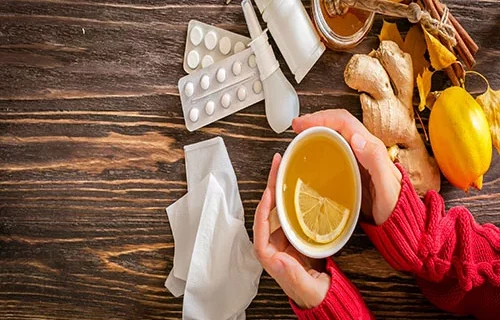
A cup of hot ginger tea is an age-old natural remedy used for colds, flu, and coughs. Its key ingredient, gingerol, helps strengthen your immune system and provides immediate comfort.
How does Ginger clear your lungs?
It is high in vitamins and minerals such as potassium, magnesium, beta-carotene, and zinc, adding extra strength to the body. According to some research, some ginger extracts are also known to kill lung cancer cells.
So Drinking ginger tea a few times a day can aid in the removal of excess mucus.
Is ginger good for acid reflux?
There is no doubting that ginger has been used to treat digestive issues worldwide for decades. Ginger can also help:
- To increase food absorption
- Regulate the flow of digestive juices in the GI (gastrointestinal) tract.
- Eliminate any extra stomach acid.
So, next time you suffer from acid reflux, try these to help soothe your symptoms.
- While cooking, use grated or diced ginger.
- To prepare ginger tea, soak a few slices of sliced ginger in hot water.
- Grate some fresh raw ginger and eat one spoonful of the pulp right after your meal.
- You can also take ginger in the form of powder, pills, or oil supplements to help with acid reflux.
Is ginger good for diarrhea?

In a 2007 animal study, ginger was proven to be an effective treatment for E. coli bacteria that causes diarrhea. Ginger works by preventing fluid from collecting in the intestines and blocking the harmful bacteria that cause diarrhea.
But it is vital to keep the dosage in mind as too much ginger intake can have an adverse impact because ginger speeds up the movement of food and feces through the intestines; it’s simple to see how consuming too much ginger could result in diarrhea. Diarrhea can occur when stool passes through the gastrointestinal tract too quickly. So, make sure you consume ginger in the ideal dosage to gain its benefits.
Can ginger help in weight loss?
Ginger is not only an excellent flavor enhancer, but it is also a fantastic alternative for weight loss. When it comes to weight loss, ginger unquestionably outperforms practically every other fancy superfood.
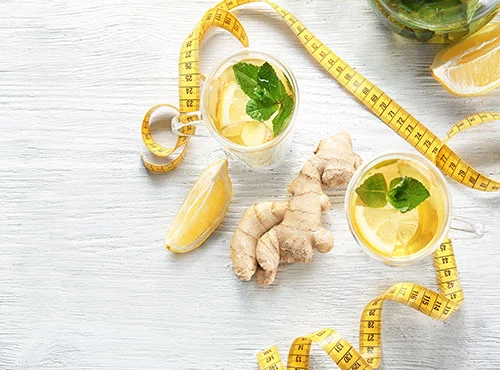
- Managing your appetite: If you take ginger daily, it will help you absorb nutrients more effectively and release energy to its maximum potential. Then you won’t feel tempted to binge on that extra cookie.
- Has anti-obesity effects: Gingerol is the main component present in ginger that promotes weight loss. Gingerol quickens food digestion and improves our metabolic rate.
- Helps in cell recovery: Antioxidants are essential for weight loss because they assist in managing free radicals that harm cells in your body that are responsible for digesting and other essential metabolic functions. Furthermore, its anti-inflammatory effects help prevent indigestion, bloating, and other gastrointestinal issues.
- Alleviating your blood sugar levels: Gingerol regulates blood sugar levels and ensures that glucose is appropriately produced, which makes it an excellent remedy for individuals who suffer from diabetes
Will ginger break a fast?
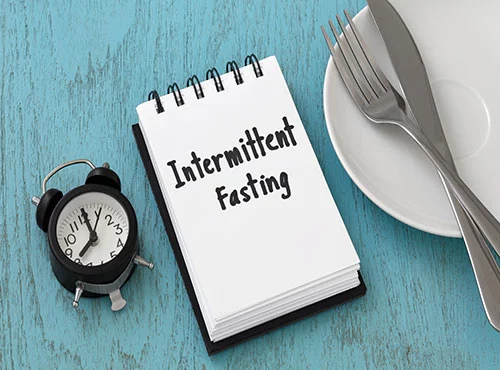
However, ginger’s calorie content depends on preparation and how it is eaten. If the quantity is small, it is unlikely to affect your weight loss goals while using intermittent fasting.
What does ginger and garlic do to the body?
Ginger and Garlic are the ‘super duo’ of Ayurveda. Not only do these two spices provide fantastic flavor and aroma to a variety of cuisines, but they may also be used as great health boosters or as quick remedies for several ailments.
Decades of scientific research have proven that these well-known herbs have anti-inflammatory and antioxidant qualities, making them great natural boosters.
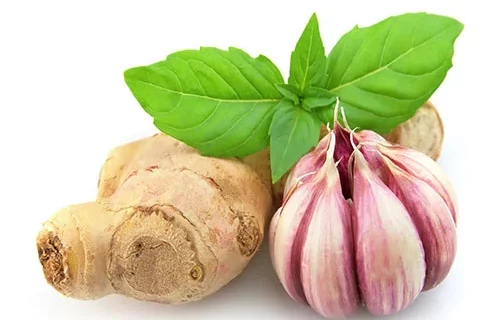
Health benefits of Garlic
1. High in antioxidants
Garlic is loaded with antioxidants! Antioxidants help you protect cells from damage caused by free radicals. Eating foods rich in antioxidants may help fight against adverse effects on the body caused by the free radicals.
2. low-calorie health punch
Garlic is a delicious way to increase nutritional value without sacrificing much of your daily calories. One clove of garlic contains a lot of B6, fiber, and selenium, which can also help you maintain blood pressure, cholesterol, and bone health.
3. All-Rounder spice
Garlic has been used to treat many illnesses in ancient times, including colds, respiratory issues, poor digestion, tuberculosis, diabetes, fevers, and even dysentery. Even though modern medicine has provided us with highly effective solutions for many of these illnesses, garlic remains an all-rounder spice with multiple health benefits for many health-conscious people who prefer natural remedies over modern medicine.
Health Benefits of Ginger
1. Anti-toxic in nature
According to Ayurvedic tradition, Ginger is considered to warm the body and aid in the breakdown of toxins in the tissues, especially the lungs and sinuses.
2. Soothe sore muscles
3. Soothe upset stomach
Where to buy Ginger?
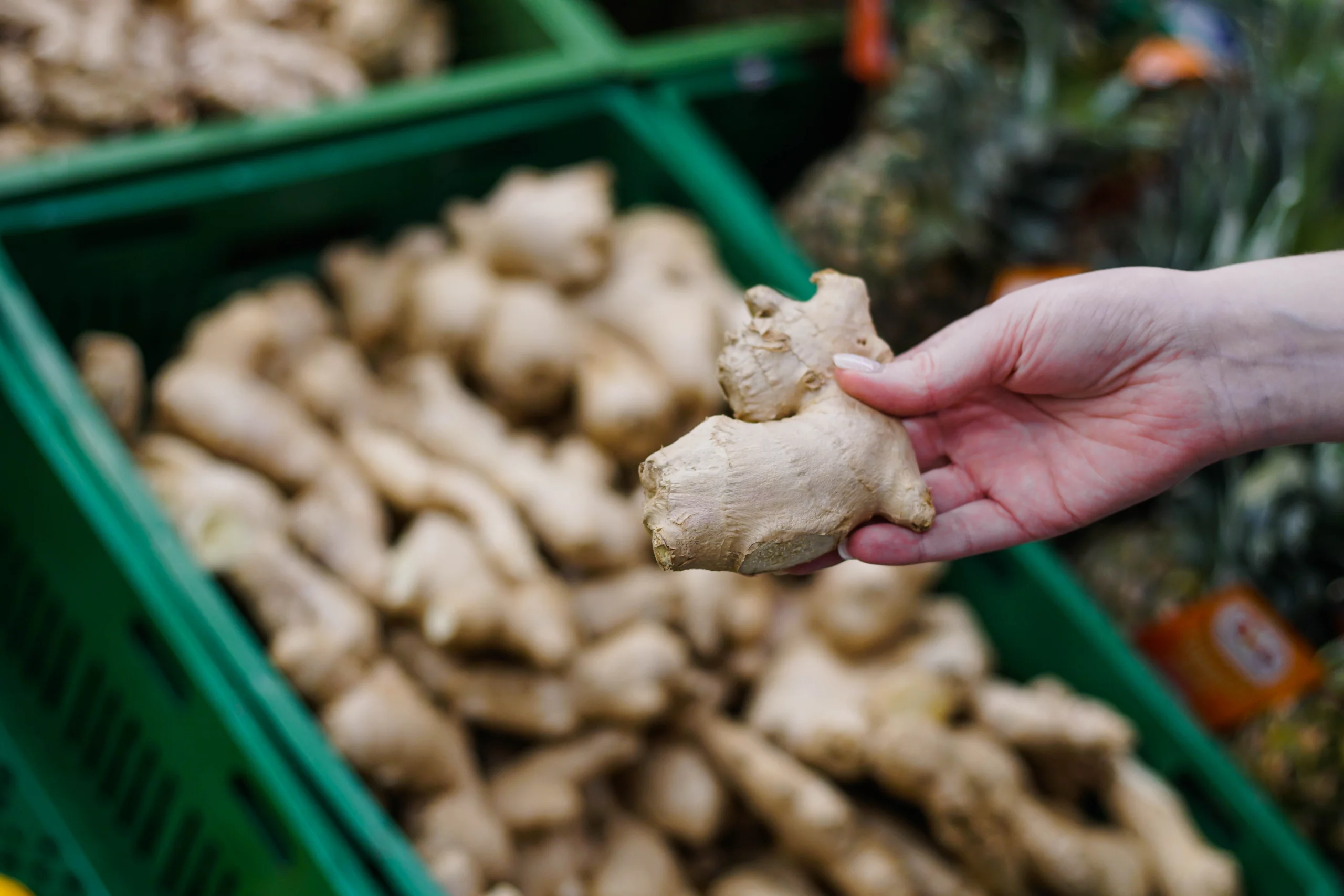
Fresh Ginger: Amazon.com
Fresh Ginger: Walmart.com
Ginger Powder: Amazon.com
Ginger Powder: Nuts.com
Ginger Juice: Gingerpeople.com
Ginger shots: Amazon.com
Ginger Candy: Gingerpeople.com
Ginger Root Extract: Amazon.com
Ginger Root Capsules: Amazon.com
Why ginger is blue inside?
Are ginger shots good for you?
Do you enjoy ginger? Do you enjoy taking shots? Well, then the ginger shot is your thing!
These shots are zesty, and healthy mini doses are packed with excellent health benefits. They’re a great way to start your day. But your body goes through a lot every day, and we all have now learned the value of a healthy immune system.
Ginger has been proven to boost our immune system, strengthen other body systems, energize us, and even protect us from diseases.
Ginger shots are tiny doses of highly flavored raw ginger juice produced from fresh ginger root and other ingredients.
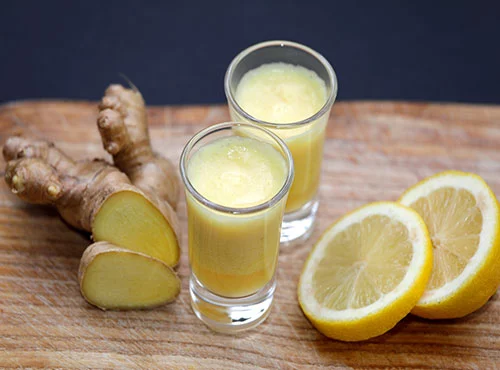
Some health benefits of Ginger shots are:
- Treat Nausea and morning sickness
- Antioxidant and anti-inflammatory properties
- Aid In arthritis
- Minimizes Sugar Levels & risk of heart disease
- Boost weight loss
- Reduces Menstruation pain
How to make ginger tea?
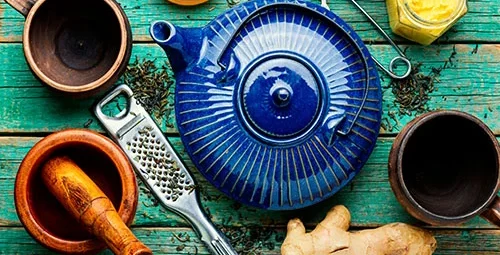
- Take one 1-inch of ginger root piece for one cup of tea
- Thoroughly wash the ginger root to remove any dirt.
- Thinly slice your fresh ginger root, or you can also grind it using a pestle and mortar.
- Take a saucepan, then add the chopped or ground ginger and freshwater (*use one cup of water per serving).
- Let the mixture to a boil over high heat for 5-8 minutes to allow the Ginger to infuse properly
- Reduce the heat to medium or low as needed to maintain a gentle simmer
- Simmer for five more minutes.
- Strain the tea, Squeeze 1/2 lemons and add honey to add extra zing! Or you can enjoy plain classic ginger tea with little sugar/honey.
Go on and sip this hot, flavourful ginger tea in the morning or at night after dinner.
